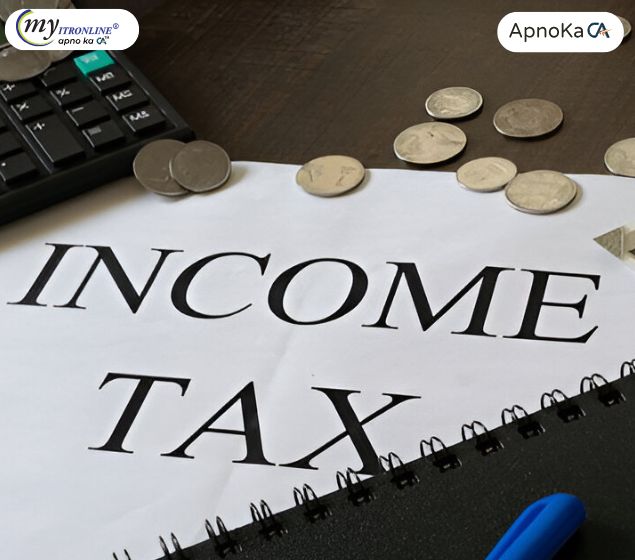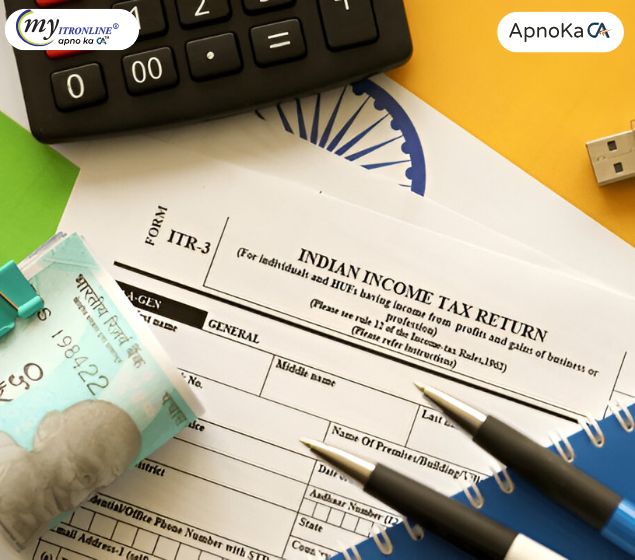# financeact2024
10 posts in `financeact2024` tag
.jpg)
CBDT Instruction No. 01/2025 – Black Money Act Update for Minor Foreign Assets
The CBDT has issued Instruction No. 01/2025 on 18 August 2025, aligning its policy with the Finance (No. 2) Act, 2024. This update ensures that prosecution under Sections 49 and 50 of the Black Money Act will not be initiated for undisclosed non-immovable foreign assets valued up to ₹20 lakh. The move offers relief to genuine taxpayers, prevents harsh action for minor errors, and focuses enforcement on serious non-compliance cases.
.jpg)
4 Major Income Tax Changes for FY 2025-26 You Need to Know
This blog provides a detailed overview of four significant amendments to the Income Tax Act effective from Financial Year 2025-26. It covers the establishment of the new tax regime as the default option for taxpayers, the mandatory timely payments to MSMEs under the new Section 43B(h), the extension of tax benefits for startups, and the revised rules and thresholds for Tax Collected at Source (TCS) on foreign remittances and luxury goods.

CBDT Notifies ITR Forms 1-7 for AY 2025-26 (FY 2024-25): What Taxpayers Need to Know
The CBDT has notified the ITR forms (1-7) for AY 2025-26, incorporating changes from the Finance Act, 2024. This blog provides a comprehensive overview of the key modifications in each form, focusing on changes in capital gains reporting, eligibility criteria, deduction disclosures, and other compliance requirements to help taxpayers prepare for the upcoming filing season.

ITR-3 AY 2025-26 Key Changes: CBDT Notification & Updates Guide
CBDT has notified ITR-Form 3 for Assessment Year 2025-26 (FY 2024-25) via Notification No. 41/2025. This affects Individuals/HUFs with business/professional income. Key updates include a split Capital Gains schedule (pre/post July 23, 2024), new conditions for claiming share buyback loss (post Oct 1, 2024), an increased asset/liability reporting threshold to ₹1 crore, addition of Sec 44BBC reference, enhanced reporting for deductions like 80C & 10(13A), and mandatory TDS section code reporting. Taxpayers should review these changes for compliant filing.

India's New 1% TCS Rule: What Buyers & Sellers of Luxury Goods Over 10 Lakh Must Know
This post details India's new 1% Tax Collected at Source (TCS) regulation, effective April 22, 2025, under Section 206C(1F). It applies to specific luxury goods (watches, art, yachts, etc.) when the sale value exceeds ₹10 lakh. The article explains the TCS mechanism, lists affected items, clarifies calculation, outlines buyer and seller responsibilities, differentiates it from Section 206C(1H), and highlights that the TCS paid is adjustable against the buyer's income tax liability.
.jpg)
Interpreting the CBDT’s Seventh Amendment Rules, 2025: Section 194T and Its TDS Effects.
The 7th Amendment Rules 2025 established by the CBDT introduces Section 194T, which requires a 10% TDS on salaries, bonuses, commissions, and other earnings. Understand its implications, necessary compliance measures, and how both businesses and individuals should adjust.
.jpg)
Tax Advantages for Various Income Levels (0–24 Lacs) – A Detailed Overview
This blog explains the tax benefits under the Finance (No.2) Act, 2024, for income levels up to ₹24 lakhs. Learn how the new tax slabs and rebates reduce tax liability and increase disposable income.
.jpg)
Income Tax Bill 2025 vs. Income Tax Act 1961: New Utility Tool for Simplified Comparison
To make it easier to compare the Income Tax Bill 2025 with the Income Tax Act 1961, as amended by the Finance (No. 2) Act 2024, the Income Tax Department has released a Utility Tool. This application ensures improved compliance and lowers mistakes by assisting businesses, professionals, and taxpayers in understanding legal changes. Discover how to utilize this tool and the advantages it offers to different stakeholders.
.jpg)
Presumptive Taxation for Non-Resident Cruise Ship Operators
The CBDT has published Notification No. 9/2025, which prescribes criteria for non-resident cruise ship operators under the presumptive taxation scheme established by the Finance (No. 2) Act of 2024. This announcement details the qualifying criteria, journey conditions, and vessel characteristics for taking advantage of the regime. Its goal is to streamline compliance, improve India's cruise tourist industry, and harmonize tax rules with international norms.

A Complete Guide to the Amendments to the Income Tax Act of 1961 to the Finance Act of 2024
An extensive overview of the changes made to the Income Tax Act of 1961 by the Finance Act of 2024 may be found in this blog article. It discusses the main adjustments, their effects on taxpayers, and the new tax system, tax rates, deductions, and exemptions.
